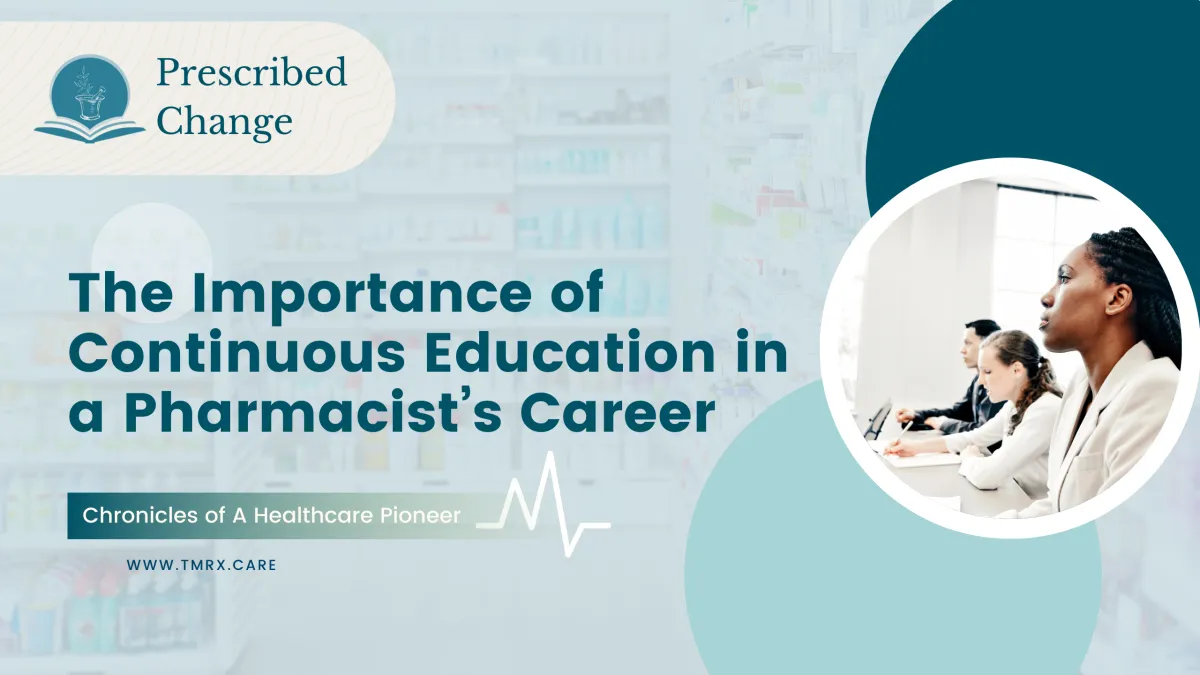
The Importance of Continuous Education in a Pharmacist’s Career
Pharmacy is a dynamic and ever-evolving field. As healthcare systems and patient needs change, continuous education becomes critical for pharmacists to stay relevant and provide the best care. Here’s why:
1. Adapting to New Technologies
Pharmacists must stay updated on technological advancements like telepharmacy and electronic health records to optimize patient outcomes and streamline processes.
2. Staying Informed on Regulations
With healthcare regulations changing frequently, ongoing education helps pharmacists ensure compliance and provide accurate, legal services.
3. Enhancing Patient Care
Continuous learning empowers pharmacists to deepen their knowledge on topics such as medication management, chronic disease care, and remote patient monitoring. This allows them to offer more comprehensive care that addresses patients’ unique needs.
4. Professional Growth and Opportunities
Education opens doors to new career paths, such as remote consulting, chronic care management, or even ownership of a pharmacy. These expanding opportunities require skills and expertise, which can be gained through dedicated learning and certification programs.
5. Fostering Lifelong Learning Habits
Committing to continuous education fosters a mindset of growth and curiosity. It enables pharmacists to remain leaders in their field and inspires them to pursue innovative solutions to emerging healthcare challenges.

Here’s Where You Can Find Resources to Stay Up-to-Date
1.Pharmacists can explore advancements in telehealth and health tech through platforms like Pharmacy Times, or webinars on healthcare technology from HIMSS.
2. Stay current on healthcare laws through resources like the American Society of Health-System Pharmacists (ASHP), which offers workshops, policy updates, and webinars.
3. Continuing education (CE) courses from organizations like Pharmacist’s Letter or APhA can deepen your understanding of medication management and chronic care, while the Pivot Program helps pharmacists integrate RPM into their practices.
4. Seek out certification programs from Board of Pharmacy Specialties (BPS) or business development seminars through NCPA, which provide training for career diversification.
5. Pharmacy conferences such as the ASHP Midyear Clinical Meeting offer networking and education opportunities, fostering a culture of learning
Conclusion
Continuous education is essential for pharmacists to maintain their professional edge, adapt to the rapid changes in healthcare, and ensure optimal patient care. By investing in their education, pharmacists not only enhance their practice but also position themselves for future success in an ever-changing industry. Programs like the Pivot Program offer practical ways for pharmacists to expand their skills and explore new career avenues in remote consulting and patient care.
